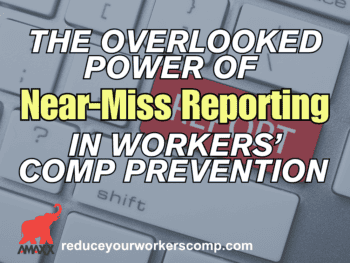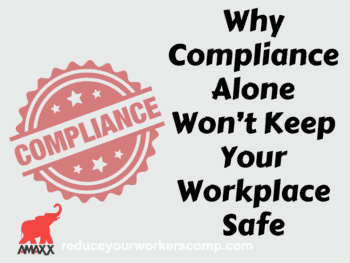Chinese-run copper mining companies in Zambia routinely flout labor laws and regulations designed to protect workers’ safety and the right to organize, according to the group Human Rights Watch in a recent release.
Zambia’s newly elected president, Michael Sata, a longtime critic of the Chinese labor practices, should act on his campaign promises to end the abuse and improve government regulation of the mining industry to ensure that all companies respect Zambia’s labor laws, according to officials with HRW. (WCxKit)
The 122-page report, “You’ll Be Fired If You Refuse’: Labor Abuses in Zambia’s Chinese State-Owned Copper Mines,” details the persistent abuses in Chinese-run mines, including poor health and safety conditions, regular 12-hour and even 18-hour shifts involving arduous labor, and anti-union activities, all in violation of Zambia’s national laws or international labor standards.
The four Chinese-run copper mining companies in Zambia are subsidiaries of China Non-Ferrous Metals Mining Corporation, a state-owned enterprise under the authority of China’s highest executive body. Copper mining is the lifeblood of the Zambian economy, contributing nearly 75 percent of the country’s exports and two-thirds of the central government revenue.
The report is centered on observations conducted during several field missions in November 2010 and July 2011 and draws on more than 170 interviews, including with 95 mine workers from the country’s four Chinese copper operations and 48 mine workers from other multinational copper mining operations. Miners at Chinese-run firms claim they were pleased that the companies had made a major investment in the copper mines and created jobs. However, they described abusive employment conditions that violate national and international standards and fall short of practices among other multinational copper mining companies in the country.
Between Oct. 5 and Oct. 12, 2011, miners at three of the four Chinese-run copper mining operations initiated strikes, hopeful that the new government’s election would create an environment for improved conditions. Production ground to a halt. On Oct. 19, Non-Ferrous China Africa, the longest-operating Chinese-owned copper mine, fired at least 1,000 striking workers. After government pressure in subsequent days, NFCA agreed to reinstate them. Reuters reported that NFCA’s chief executive officer said that the reinstated workers would be screened and the “troublemakers” disciplined.
Miners from the Chinese-owned companies reported consistently poor health and safety standards, including inadequate ventilation that can lead to serious lung diseases, the failure to replace workers’ damaged protective equipment, and routine threats to fire workers who refuse to work in unsafe places underground. These practices, combined with the already dangerous nature of copper mining, cause injuries and other health complications. At times, Chinese managers bribe or threaten miners to keep them from reporting accidents or other problems to the government’s Mines Safety Department, the miners said.
In addition to their poor safety standards, several Chinese-run copper operations in Zambia require miners to work brutally long shifts, despite difficult conditions involving extreme heat and contact with acids and noxious chemicals. Many miners at Sino Metals work five 12-hour shifts a week as well as a sixth 18-hour “change shift” when they rotate from the day shift to the night shift or vice versa. Other miners there described working 365 days without a single day off. Zambian law specifies a 48-hour work week, and every other multinational copper mining company uses 8-hour shifts that comply with this law. Several miners said the long hours contributed to accidents, and many complained about failing to receive proper overtime.
The curtailment of union activity hampers the ability to address these and other issues of concern to workers – particularly pay, which is higher than Zambia’s monthly minimum wage, but much lower than that paid by other multinational copper mining firms in Zambia.
Several Chinese-run operations have prevented workers from exercising their right to join the labor union of their choice through threats and intimidation. Miners in companies run by the Chinese or other multinationals also described retaliation against outspoken union representatives, including docked pay or refusal to renew their contracts. (WCxKit)
Primary responsibility for ensuring that Zambia’s copper mining companies operate in accordance with national and international standards rests with the Zambian government. It has a Mines Safety Department within the Ministry of Mines and Minerals Development that is responsible for enforcing the country’s mining regulations, including on health and safety.
Author Robert Elliott, executive vice president, Amaxx Risk Solutions, Inc. has worked successfully for 20 years with many industries to reduce Workers Compensation costs, including airlines, healthcare, printing/publishing, pharmaceuticals, retail, hospitality and manufacturing. He is an editor and contributor to Workers Compensation Management Program: Reduce Costs 20% to 50%. Contact: Info@ReduceYourWorkersComp.com.
WORKERS COMP MANAGEMENT GUIDEBOOK: www.WCManual.com
WORK COMP CALCULATOR: www.LowerWC.com/calculator.php
MODIFIED DUTY CALCULATOR: www.LowerWC.com/transitional-duty-cost-calculator.php
SUBSCRIBE: Workers Comp Resource Center Newsletter
Do not use this information without independent verification. All state laws vary. You should consult with your insurance broker or agent about workers comp issues.
©2011 Amaxx Risk Solutions, Inc. All rights reserved under International Copyright Law. If you would like permission to reprint this material, contactInfo@ReduceYourWorkersComp.com.




























